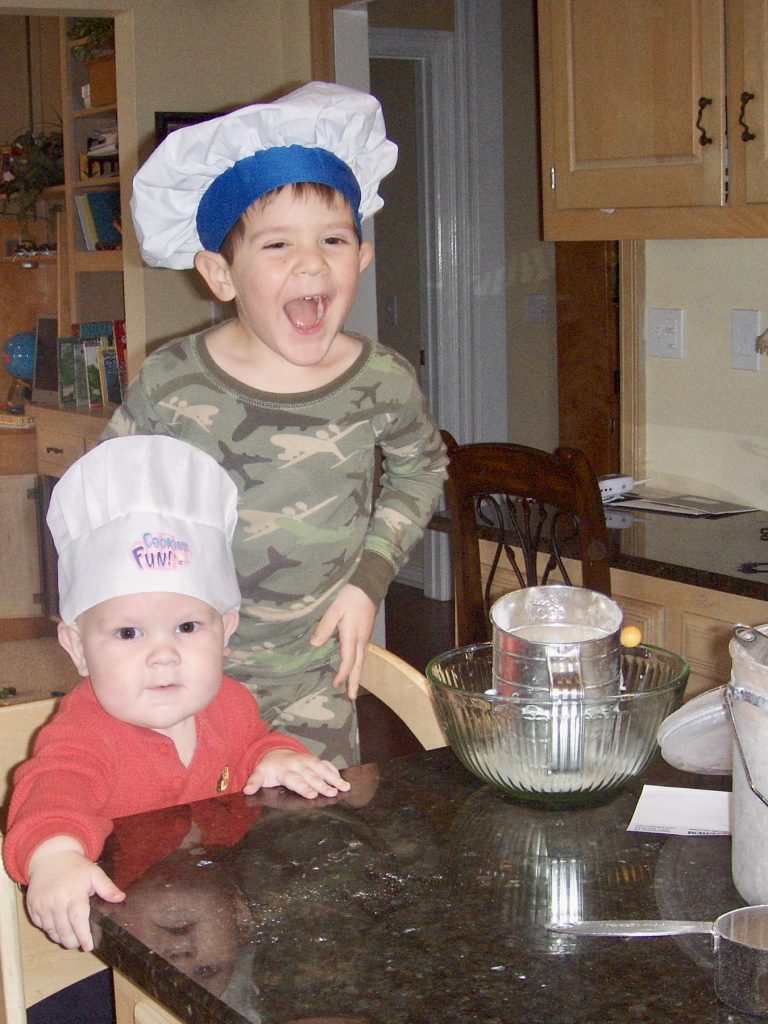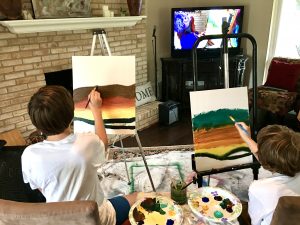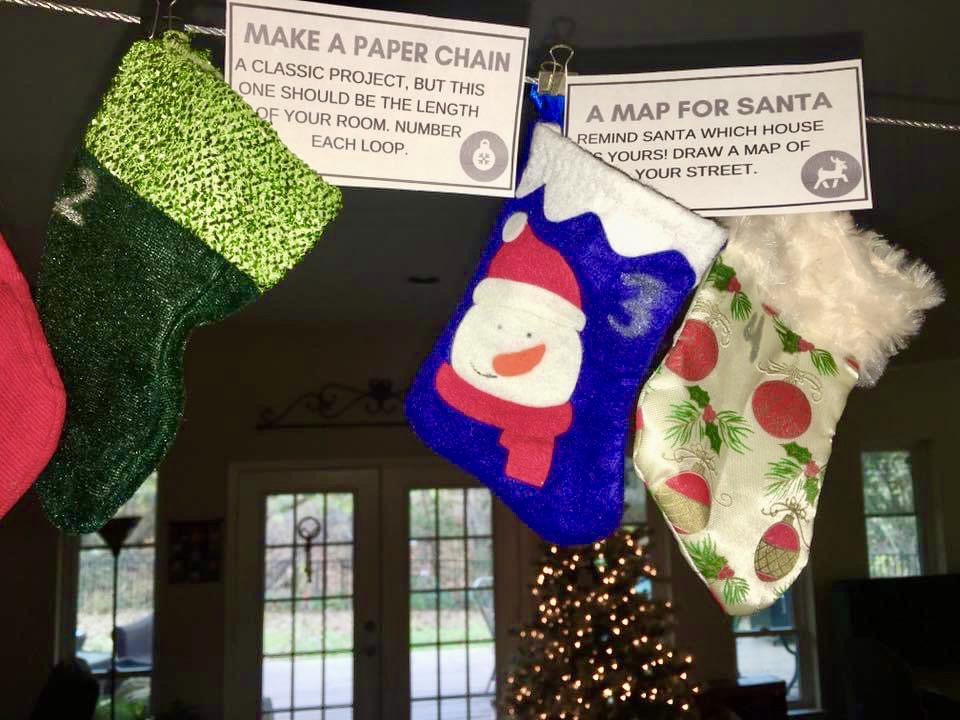011. All About Family

All About Family
How do you balance multi-age students?
How do you encourage strong sibling relationships?
How do you encourage extended family support?
Tune in this week while we discuss these topics and more!

Episode 011:
TWO WAYS TO LISTEN TO THIS EPISODE:
1. Click PLAY Button Above ^^ to listen here.
2. OR Listen on your favorite podcast platform:
Scroll Down for this week’s Freebies:
Sibling Kindness Poster and more!
Brand New to Homeschooling?
GETTING START PAGE >>
Kindergarten Page >>
High School Series >>
Show Notes
How to balance multi-age students? (2:11)
One of the biggest reasons people give for wanting to homeschool is to spend more time with family. That can be more quality time with your immediate family or more flexibility in visiting extended family, as well. Whatever your reasons for choosing this lifestyle, it’s a true whole family commitment.
Parenting is not always pretty. What you see on social media doesn’t always paint a true picture of what’s going on in the home. We may have this expectation that everybody else has this happy, peaceful home and that is even more of a concern when we homeschool. Conflicts will arise, but keep in mind that we are here to teach our kids much more than just curriculum. We are teaching them appropriate ways to deal with their emotions, frustrations and how to problem solve.

Much of our early homeschooling journey was balancing the needs of younger kids that still needed a lot of one-on-one help, while keeping a nursing baby happy, or keeping a toddler from climbing on the table or screaming during a read aloud, to keeping a preschooler occupied during events or activities that were meant for older kids.

Sometimes it is easiest to have a short early morning routine with breakfast and reading on the couch and go get some energy out – either at the park, go for a long walk or sometimes head to the mall, if the weather isn’t favorable. We would also have regular play dates with families that meshed with our family and the younger siblings were ALWAYS involved. If we met up with friends in the morning, then we would do school in the afternoon and vice versa.
In those early years, we did most activities as a family. Both kids helped with meal prep, household chores, and even the household budget. Reading was always a huge part of the day, and we spent a lot of time at the library. A good way to get littles motivation in the morning is activities like morning baskets, shared crafts, or schooling certain subjects together before moving on to one on one or trickier subjects. Once a little one’s attention needs have been satisfied, it is often easier to move on to harder things with older students.

A big help for schooling with multi-age students is encouraging the older ones to help to teach the younger sibling. Teaching is a great way to help solidify ideas and concepts that they have learned, and it is beneficial for the older child, as well as the younger sibling. Project based homeschooling is also a great way to include everyone.
Sometimes it also helps giving a younger one “work” to do too. Preschoolers don’t really need a ton of formal education, but some may want to do what older siblings are doing, so it’s totally fine to make them a binder full of coloring or handwriting pages or give them their own age-specific craft or activity to do at the same time.
Trading time with other friends with similar spreads- we and another friend did a mom camp with younger siblings while older siblings attended a camp one summer. We each traded off a day each and it was a great way for the younger friends to bond while the older were occupied and the moms got some me time, too. We also created clubs because all the girls were in one group and we needed a place or activity for the boys. And we’ve both also done field trips and activities where there is an age limit and perhaps one parent went with all the older students, while another hung out with the youngsters at a nearby venue.

It was important to us to search out inclusive family groups or activities. We almost always did multi age events and groups- park days, hiking group, clubs. Most of our friends were in the same boat, none of us had time to attend 2, 3, 4, single kid activities several times a week, and we had a lot of overlap in friend groups, too.
For a while we had to say no to a group that my older kids very much wanted to be a part of just because there was an age minimum that little sister hadn’t met yet. It wasn’t worth the drama to send them when she also really wanted to go, so we just waited a year until everyone was old enough to participate.
Some favorite books about parenting and family relationships:
“Siblings without Rivalry” by Adele Faber and Elaine Mazlish:

“How to Talk so Kids will Listen…” series, also by Faber and Mazlish:



How to encourage strong sibling relationships? (14:56)
Sibling relationships are key to a strong family unit and if you foster a great bond early, this will benefit them for the rest of their lives. Siblings influence one another on development, friendship, support, personality, identity, and emotion regulation.
Sibling conflict is normal. Most behaviors children’s exhibit serve a function- understanding that will help you effectively honor the child’s mission and correct the behavior. Sometimes a scuffle over a toy or an older child picking on a younger is meant to elicit a response and some attention from mom. These moments can be frustrating but if we just shift our thinking, we can see them as opportunities to teach Conflict Resolution!
Some ways we can foster healthy sibling bonds:

- Avoid competition and rivalry, cheer each other on, promote the idea of a sibling/family team.
- Check your own emotions when kids argue, take a break, help kids work out problems without making anyone wrong.
- Encourage siblings to nurture one another, taking care of each other, having a sibling ask if the other is ok after they get hurt.
- Create sibling special times.
- Letting kids play together even if it interrupts learning time. Notice and promote the activities that get your kids playing together-do not interrupt happy play.
- Promote family activities that put kids in charge and let them make decisions.
- Have a great nighttime routine! Winding down, reading together, saying goodnight to one another, talking about the day or plans for tomorrow. Often in the dark, side by side, it’s easier to say things out loud that maybe you struggle to say in person, don’t rush. Listen to your kids. There’s a reason kids put off going to bed. They want to be with you, with each other, work through their emotions, etc.
How to encourage extended family support? (25:08)
There are many different families and types of family support.

How to deal with Negative support:
- Spend less time with unsupportive people- don’t put yourself in situations where you are going to feel on the spot or criticized for your choices. If you have a hard time saying no to that, think about whether it’s fair to put your kids in that situation.
- Have strong boundaries- your choices are not up for discussion.
- Stop the info train-when you invite people into the conversation, sometimes they think they get a vote.
- Respect is earned, not expected. Do not be afraid to walk away from relationships that do not benefit your family.
How to encourage Positive support:
- People do not need to understand your choices, to support you.
- Include positive information about what you are learning, doing, activities with extended relatives.
- If grandparents, aunts, uncles, other extended family have special skills or interests, include them in your schooling or encourage them to share with the kids.
- Encourage gifts like museum memberships, books, supplies, or class tuition.
- Being present, if you have local family and friends, inviting them to your kids’ activities or events is wonderful. It’s great for them to see your kids thriving.






































